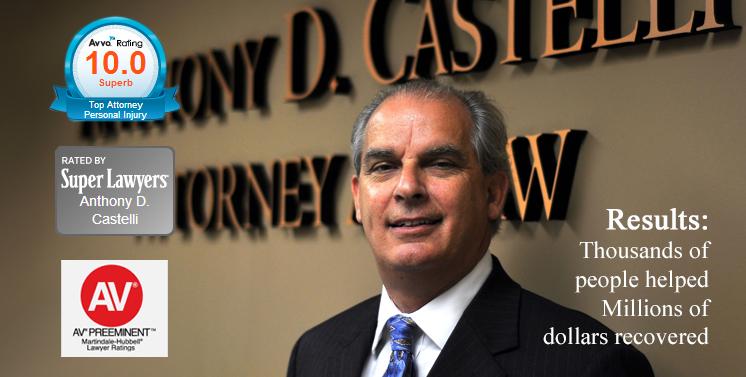Posted: September 10, 2024
Navigating Ethical Referrals in Personal Injury Cases: A Guide for Attorneys
Referrals are a cornerstone of the legal profession, allowing attorneys to connect clients with specialists who can better serve their needs. However, referring cases in personal injury matters requires careful consideration of ethical guidelines and client welfare. This blog post will delve into the best practices for referring personal injury cases, including how to select a competent attorney, negotiate fee-sharing arrangements, and maintain open communication with clients.
The Ethics of Referral Fees
The American Bar Association (ABA) Model Rules of Professional Conduct provide specific guidelines for fee-sharing arrangements between attorneys. These rules generally allow attorneys to divide fees with other lawyers who contribute to the representation, provided that:
- The fee is reasonable: The total fee charged to the client must be reasonable under the circumstances.
- The client consents: The client must be informed of the fee-sharing arrangement and agree to it in writing.
- The referring attorney remains responsible: The referring attorney remains responsible for the quality of the representation provided by the referred attorney.
When negotiating a fee-sharing arrangement, it's essential to ensure that the agreed-upon percentage is fair and reflects the contributions of each attorney to the case. Transparent communication with the client is crucial to avoid misunderstandings and potential conflicts of interest.
Selecting the Right Attorney
Choosing a competent attorney to refer a personal injury case is a critical decision. Here are some factors to consider when evaluating potential candidates:
- Experience and expertise: Look for an attorney with a proven track record in handling similar cases.
- Reputation: Consider the attorney's reputation among other legal professionals and clients.
- Ethical standards: Ensure that the attorney adheres to the highest ethical standards.
- Communication skills: Effective communication is essential for building trust with clients and keeping them informed about the case's progress.
It's also advisable to conduct thorough research on potential referral attorneys, including checking their disciplinary history and online reviews.
Maintaining Open Communication with Clients
Open and transparent communication with clients is essential throughout the referral process. Here are some key points to remember:
- Inform clients of the referral: Clearly explain the reasons for referring the case and the benefits of working with a specialist attorney.
- Obtain informed consent: Ensure that clients understand the fee-sharing arrangement and agree to it in writing.
- Keep clients updated: Regularly communicate with clients about the progress of the case, including any significant developments or challenges.
- Address client concerns: Be responsive to client inquiries and concerns, addressing them promptly and professionally.
Ohio has its own very specoific rules on fee sharing.
Ohio Rule
For those familiar with the ABA Model Rules, it’s worth noting that Ohio adds several additional requirements for attorney referrals. Ohio Rules of Professional Conduct Rule 1.5(e) governs divisions of fees. It states:
Lawyers who are not in the same firm may divide fees only if all of the following apply:
- (1) the division of fees is in proportion to the services performed by each lawyer or each lawyer assumes joint responsibility for the representation and agrees to be available for consultation with the client;
- (2) the client has given written consent after full disclosure of the identity of each lawyer, that the fees will be divided, and that the division of fees will be in proportion to the services to be performed by each lawyer or that each lawyer will assume joint responsibility for the representation;
- (3) except where court approval of the fee division is obtained, the written closing statement in a case involving a contingent fee shall be signed by the client and each lawyer and shall comply with the terms of division (c)(2) of this rule;
- (4) the total fee is reasonable.
Ohio Rule
For those familiar with the ABA Model Rules, it’s worth noting that Ohio adds several additional requirements for attorney referrals. Ohio Rules of Professional Conduct Rule 1.5(e) governs divisions of fees. It states:
Lawyers who are not in the same firm may divide fees only if all of the following apply:
- (1) the division of fees is in proportion to the services performed by each lawyer or each lawyer assumes joint responsibility for the representation and agrees to be available for consultation with the client;
- (2) the client has given written consent after full disclosure of the identity of each lawyer, that the fees will be divided, and that the division of fees will be in proportion to the services to be performed by each lawyer or that each lawyer will assume joint
- responsibility for the representation;
- (3) except where court approval of the fee division is obtained, the written closing statement in a case involving a contingent fee shall be signed by the client and each lawyer and shall comply with the terms of division (c)(2) of this rule;
- (4) the total fee is reasonable.
You can see that Ohio law at 1 (5) e 2 lists two ways that attorneys can participate in the fee. This makes it so an outright referral can be made and the customary 1/3 referral fee ( 1/3 of the 1/3 fee) can be accepted. This used to be a simple handshake. Those were the days. Some things in the law seem to never change and otrher change just when you get it. dealing with uncertaintly
By maintaining open communication with clients, attorneys can build trust and foster positive relationships.
Conclusion
Referring personal injury cases ethically requires careful consideration of various factors, including ethical guidelines, client welfare, and the selection of a competent attorney. By following the principles outlined in this blog post, attorneys can ensure that their referrals are beneficial for both clients and the legal profession.
Loveland , USA • and cincinnati, ohio


